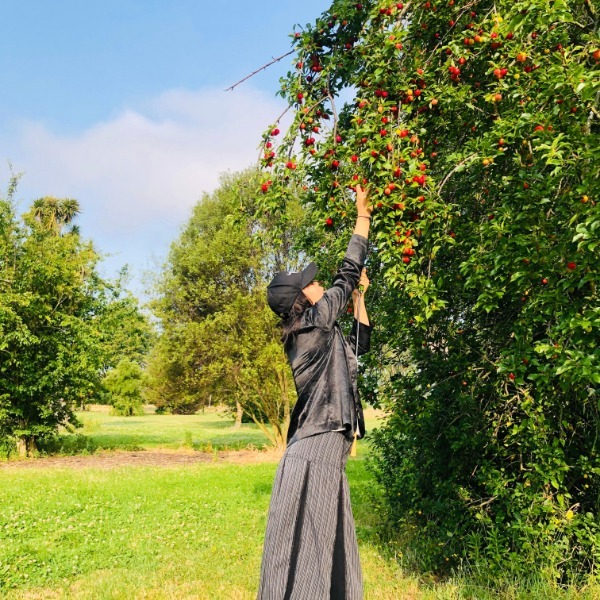 |
|
Ding Hong, who lives a minimalist life, picks wild fruits in the woods near her rented home in Christchurch, New Zealand. [Photo provided to China Daily] |
Eco-pioneers are treading a new path to limit their environmental footprint, and more are expected to join them on this route as waste management becomes ever more relevant. World Bank data shows that an average city dweller is responsible for dumping more than 270 kilograms of solid waste each year, about 0.74 kg each day.
But Ding Hong is counteracting this by adopting a lifestyle, in which such wastage is almost nonexistent-her solid waste barely fills an empty coffee can following her "one-year zero waste challenge", which she began in July last year.
Now an illustrator and animator at Maui Studios Aotearoa, an animation and game company in New Zealand, the 39-year-old is a committed "freegan", who rejects consumerism and seeks to help save the environment by reducing waste.
"My experiment made me realize that it is not necessary for humans to generate so much plastic waste, which is not biodegradable," Ding says.
To minimize her waste, she has quit instant noodles and barely shops online, to reduce her use of packaging materials. Every aspect of her life, even the most intimate, is governed by the philosophy of waste reduction. For instance, she uses a menstrual cup, which with due care can last for years.
For Ding, the concept helps her to live a different life, a life of less but one with more freedom and experiences.
"Freegans are not beggars. Many of them can afford to live another life," Ding explains.